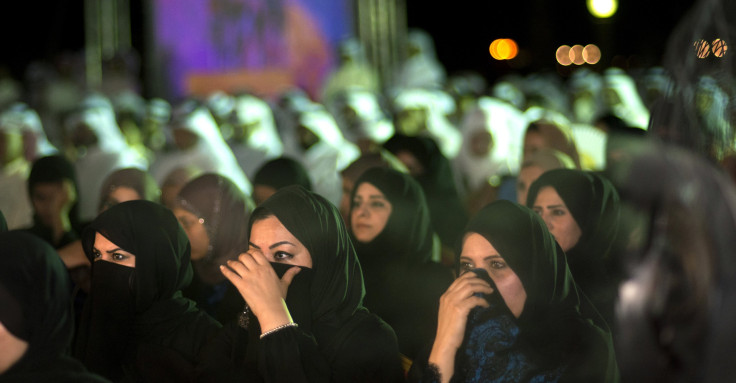Kuwait May Allow Women As Air Force Pilots, But Gender Equality Remains Elusive In Kingdom

The Kuwaiti government says it may consider allowing women to train as pilots in its air force.
According to Al Rai, a Kuwaiti newspaper, there is “a serious study being conducted to allow women to join the Kuwaiti air force,” after only seven men applied for the position, far below the requisite minimum.
“There is now a serious tendency to benefit from the potential of Kuwaiti women to join this significant and sensitive sector, especially that the political leaders have been encouraging young men and women to become members of the army,” a military source told the paper.
“Kuwaiti women have already proven their prowess in the security forces, where they have held high positions as officers. They have displayed impressive levels on assuming responsibility, especially in dealing with the people.”
The Gulf News reported that the proposal to allow female air force pilots will be referred to the Cabinet for final approval.
Pending such a measure, the first female applicants will be trained as helicopter and cargo plane pilots.
In the event women join the Kuwaiti air force, it would mark another milestone in the long struggle for gender equality in the oil-rich Gulf kingdom.
Only eight years ago, in 2005, Kuwaiti women gained the right to vote in parliamentary and local elections – a monumental change for the Gulf state.
By May 2009, four women won seats in the Kuwaiti parliament – losing them in February 2012, but regaining three in December of that year.
In addition, the Kuwaiti Cabinet now boasts two women: Dhikra Al Rashidi, minister of social affairs and labor, and Rola Dashti, in charge development and parliament affairs.
Dr. Dilshod Achilov, assistant professor of political science at East Tennessee State University in Johnson City, said that if women do indeed join the Kuwaiti air force, it “would be historic in Kuwaiti history. But it would not be a big surprise.”
Achilov points out that women have actively served in the military ranks of various Arab and/or Muslim nations, including Algeria, Syria and Turkey.
“Oman, another Gulf state, allowed female officers to the join the army not too long ago,” he said.
“However, in general terms, female enrollment in the military is not common in the Middle East. But this trend has been shifting over the past few years. The best word that describes the Mideast social and political discourse is ‘change.’ The dynamics of this change has been happening from the bottom up, which demonstrates public engagement and commitment to pursue change.”
However, Kuwait women still face a long uphill battle in their quest for equal rights.
Last year, Human Rights Watch noted that women in the kingdom continue to face a number of discriminatory laws.
“Kuwait’s nationality law denies Kuwaiti women married to non-Kuwaiti men the right to pass their nationality on to their children and spouses, a right held by Kuwaiti men married to foreign spouses,” the campaigners group said.
“In cases of alleged domestic violence or marital rape, under Kuwaiti regulations, courts provide lawyers to the accused but not to the victims. Furthermore, Kuwait's laws do not specifically prohibit domestic violence or marital rape, and there are no government-run or funded shelters or hotlines specifically for survivors of domestic violence.”
Earlier this year, Dr. Alanoud Al-Sharekh, a senior fellow at the International Institute for Strategic Studies and senior political analyst at the Kuwait National Security Bureau, spoke of the current condition of Kuwait’s women at a forum for women's issues before students from the University of Colorado and Tufts.
“The first election women participated in, no female won,” she said, according to the Arab Times.
“However, just in the second election, in a span of only two years, four women were elected. So, we are no longer a society that doesn’t recognize women in a position of authority. Of course that gap was bridged by having two female ministers in the Cabinet.”
But she added that many laws pose obstacles to women achieving careers in other fields, like judgeships.
“It is just a social bias and lack of awareness,” she lamented. “There are many laws that are biased against women and have no value in the constitution and should be reformed. There are laws of nationality that are biased, housing laws and labor laws that are biased.
“The laws are just a product of a tribal, warrior point of view that is very traditional and are in direct conflict with our civil rights and our rights as Muslims. They are not even covered under the political Islam umbrella. For example, there is a 1960s law that essentially allows honor killings."
© Copyright IBTimes 2024. All rights reserved.




















